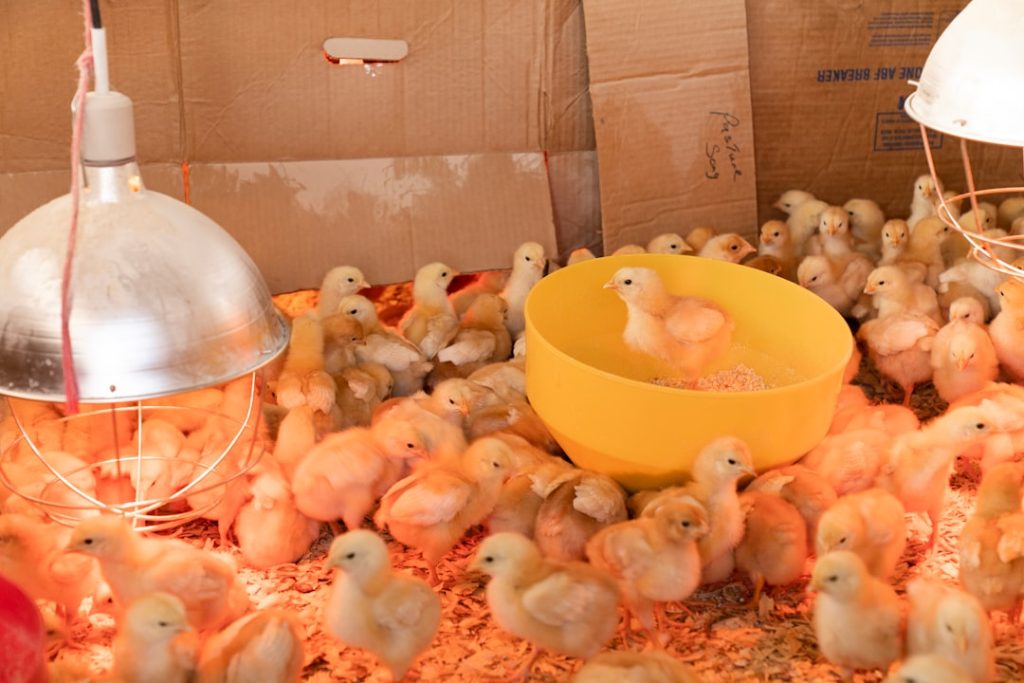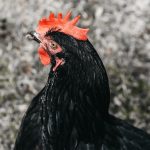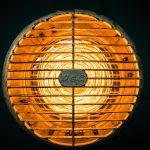During winter, outdoor chickens have specific requirements to maintain their health and well-being. Although chickens are naturally adapted to cold temperatures, they still need certain provisions to remain comfortable and healthy in winter conditions. Proper care for outdoor chickens during this season is essential for flock owners.
Chickens require protection from harsh weather elements such as wind, rain, and snow. They need access to unfrozen water and a warm, dry roosting area for nighttime. A balanced diet is crucial to help chickens maintain their body temperature and energy levels in colder weather.
Winter also brings increased predator activity, necessitating secure coops and runs to protect the flock. Chickens may be more susceptible to illness or injury in cold weather, requiring extra attention and care from their owners. Understanding and addressing these needs is vital for ensuring the health and well-being of outdoor chickens during winter months.
Table of Contents
- 1 Providing adequate shelter for outdoor chickens
- 2 Insulating the chicken coop
- 3 Using heat sources for outdoor chickens
- 4 Providing warm bedding for outdoor chickens
- 5 Ensuring access to water in winter
- 6 Monitoring the health of outdoor chickens in winter
- 7 FAQs
- 7.1 What are the best ways to keep outdoor chickens warm in winter?
- 7.2 How can I insulate my chicken coop for winter?
- 7.3 Are heat lamps safe for outdoor chickens in winter?
- 7.4 What temperature is too cold for outdoor chickens in winter?
- 7.5 How can I prevent moisture buildup in the chicken coop during winter?
Key Takeaways
- Outdoor chickens need protection from cold temperatures, wind, and moisture in winter
- Adequate shelter for outdoor chickens includes a draft-free coop with proper ventilation
- Insulating the chicken coop with materials like straw, hay, or foam can help retain heat
- Heat sources like heat lamps or heated pads can be used to keep outdoor chickens warm
- Providing warm bedding such as straw or wood shavings can help outdoor chickens stay comfortable and insulated
- Ensuring access to unfrozen water is crucial for the health and well-being of outdoor chickens in winter
- Regularly monitoring the health of outdoor chickens, including checking for signs of frostbite or respiratory issues, is important in winter
Providing adequate shelter for outdoor chickens
Key Features of a Well-Built Coop
The coop should be insulated and draft-free, with proper ventilation to prevent moisture buildup. Additionally, the coop should be raised off the ground to prevent flooding and provide a dry environment for the chickens.
Providing a Safe Outdoor Space
In addition to a secure coop, outdoor chickens also need a covered run where they can exercise and forage for food without being exposed to the elements. The run should be covered with a roof or tarp to provide protection from rain and snow, and it should be large enough to allow the chickens to move around comfortably.
Additional Considerations for a Comfortable Environment
Providing adequate shelter for outdoor chickens ensures that they have a safe and comfortable environment to spend their time during the winter months. It’s also important to provide roosting bars inside the coop where the chickens can perch at night. Roosting bars should be placed higher than the nesting boxes to encourage the chickens to roost at night and keep them off the cold floor. Adequate shelter for outdoor chickens is crucial for their health and well-being during the winter months, and it’s important for chicken owners to provide a safe and comfortable environment for their flock.
Insulating the chicken coop
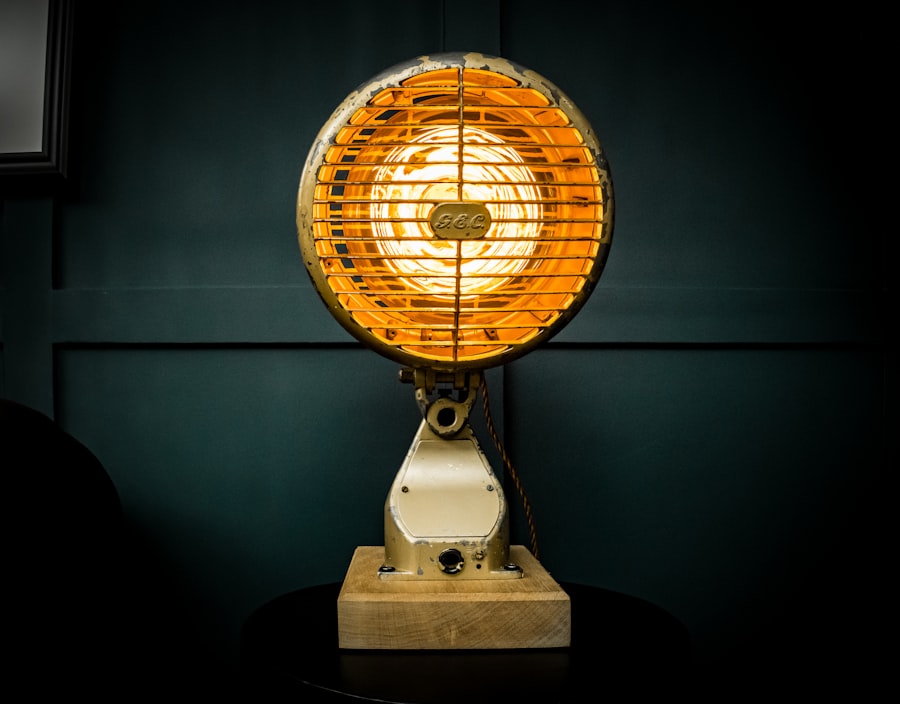
Insulating the chicken coop is an important step in providing a warm and comfortable environment for outdoor chickens during the winter months. Proper insulation helps regulate the temperature inside the coop, keeping it warm in cold weather and cool in hot weather. Insulation also helps prevent drafts and moisture buildup, which can lead to respiratory issues and other health problems for chickens.
There are several ways to insulate a chicken coop, including adding insulation panels to the walls and ceiling, filling gaps and cracks with caulk or foam, and using straw or hay as additional insulation. It’s important to insulate the coop without compromising ventilation, as proper airflow is essential for maintaining good air quality inside the coop. Insulating the chicken coop helps create a cozy and comfortable environment for outdoor chickens to roost and stay warm during the winter months.
In addition to insulating the walls and ceiling, it’s important to insulate the floor of the coop to prevent cold drafts from coming up from the ground. This can be done by adding a layer of straw or hay on the floor, or by using insulation panels or foam boards underneath the flooring. Insulating the chicken coop is an important step in providing a warm and comfortable environment for outdoor chickens during the winter months, and it’s essential for maintaining their health and well-being in colder weather.
Using heat sources for outdoor chickens
Using heat sources for outdoor chickens can help provide additional warmth during the winter months. While chickens are naturally equipped to handle cold temperatures, providing supplemental heat can help keep them comfortable and healthy in extreme cold weather. There are several types of heat sources that can be used in a chicken coop, including heat lamps, radiant heaters, and heated pads or mats.
Heat lamps are a popular choice for providing warmth in a chicken coop, as they emit a focused beam of heat that can help keep the coop warm during cold weather. It’s important to use heat lamps with caution, as they can pose a fire hazard if not properly installed and monitored. Radiant heaters are another option for providing supplemental heat in a chicken coop, as they emit infrared heat that warms objects rather than air, making them an efficient choice for keeping chickens warm.
Heated pads or mats can also be used to provide warmth in specific areas of the coop, such as nesting boxes or roosting bars. These heated pads or mats are designed to provide a gentle warmth that can help keep chickens comfortable during cold weather. Using heat sources for outdoor chickens can help provide additional warmth during the winter months, but it’s important to use them with caution and monitor them closely to ensure the safety of the chickens and prevent any potential fire hazards.
Providing warm bedding for outdoor chickens
Providing warm bedding for outdoor chickens is essential for keeping them comfortable and cozy during the winter months. Bedding helps insulate the coop and provides a soft, dry surface for chickens to roost and nest on. There are several types of bedding that can be used in a chicken coop, including straw, hay, wood shavings, and shredded paper.
Straw is a popular choice for chicken bedding, as it provides good insulation and absorbs moisture well. Hay is another option for bedding, as it provides warmth and comfort for chickens while also serving as a source of food and entertainment. Wood shavings are also commonly used as bedding for chickens, as they provide good insulation and absorb moisture effectively.
Shredded paper can also be used as bedding for chickens, as it provides a soft surface for them to roost on while also being easy to clean and replace. Providing warm bedding for outdoor chickens is essential for keeping them comfortable and healthy during the winter months. It’s important to regularly clean and replace bedding to ensure that it remains dry and free from mold or bacteria, which can pose health risks for chickens.
Ensuring access to water in winter
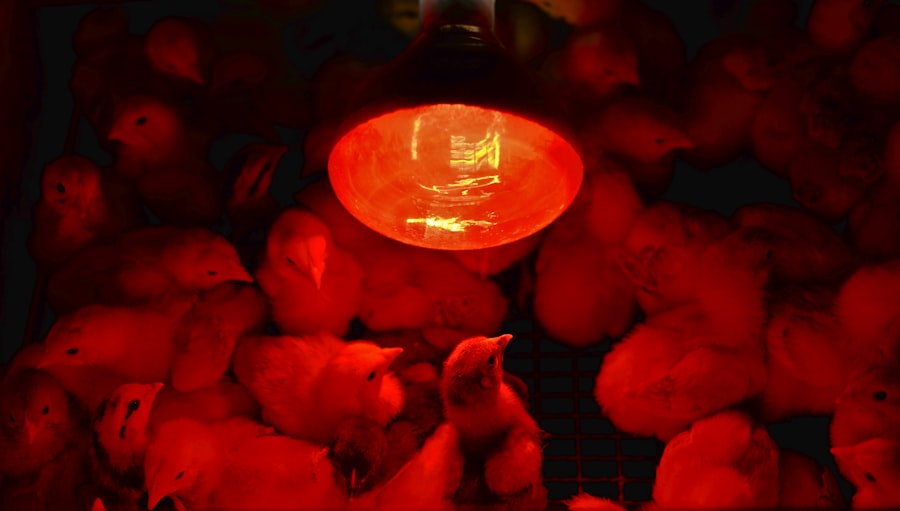
Heated Waterers: A Reliable Solution
Heated waterers are an effective way to ensure access to water for outdoor chickens in winter, as they are designed to prevent water from freezing by emitting heat around the water container. Heated waterers come in various sizes and styles, making it easy to find one that suits the needs of your flock.
Insulating Water Containers: An Additional Layer of Protection
Insulating water containers with foam or insulation panels can also help prevent water from freezing in cold weather, ensuring that chickens have access to clean water throughout the day.
Providing Warm Water: A Simple yet Effective Approach
Providing warm water multiple times throughout the day can also help ensure that outdoor chickens have access to water in winter. By regularly replacing frozen water with warm water, chicken owners can ensure that their flock stays hydrated and healthy during the colder months. Ensuring access to water in winter is crucial for outdoor chickens’ health and well-being, and it’s important for chicken owners to take proactive measures to prevent water from freezing in cold weather.
Monitoring the health of outdoor chickens in winter
Monitoring the health of outdoor chickens in winter is essential for identifying any potential issues or illnesses early on and providing prompt care. Cold weather can make chickens more susceptible to respiratory issues, frostbite, and other health problems, so it’s important to keep a close eye on their behavior and physical condition during the winter months. There are several signs that chicken owners should watch out for when monitoring their flock’s health in winter.
One common sign of health issues in outdoor chickens during winter is lethargy or decreased activity. If chickens are spending more time huddled together or staying inside their coop instead of moving around and foraging as usual, it could be a sign that they are not feeling well. Additionally, changes in appetite or drinking habits can indicate potential health issues in outdoor chickens during winter.
It’s also important to regularly check on your flock’s physical condition, paying attention to any signs of frostbite or respiratory issues such as coughing or wheezing. Regularly inspecting your flock’s feet, comb, wattles, and other exposed areas for signs of frostbite is crucial for preventing serious health issues in cold weather. Monitoring the health of outdoor chickens in winter is essential for providing them with prompt care and ensuring their well-being during the colder months.
Regular observation and proactive care can help prevent potential health issues from escalating into more serious problems for your flock.
If you’re looking for more information on caring for outdoor poultry, you might be interested in this article on how many eggs geese lay. It’s important to understand the specific needs of different types of poultry when it comes to keeping them warm and healthy in the winter.
FAQs
What are the best ways to keep outdoor chickens warm in winter?
Some of the best ways to keep outdoor chickens warm in winter include providing a well-insulated coop, using heat lamps or heated pads, and ensuring proper ventilation to prevent moisture buildup.
How can I insulate my chicken coop for winter?
You can insulate your chicken coop for winter by adding extra bedding, sealing any drafts, and using insulating materials such as foam board or straw bales. It’s important to ensure that the coop remains well-ventilated despite the insulation.
Are heat lamps safe for outdoor chickens in winter?
Heat lamps can be safe for outdoor chickens in winter if they are used properly and securely installed to prevent fire hazards. It’s important to use heat lamps specifically designed for use in coops and to keep them out of reach of the chickens to prevent burns.
What temperature is too cold for outdoor chickens in winter?
Chickens can generally tolerate cold temperatures, but it’s important to ensure that the coop remains above freezing to prevent frostbite and other cold-related health issues. Temperatures below 0°F (-18°C) can be particularly dangerous for chickens.
How can I prevent moisture buildup in the chicken coop during winter?
To prevent moisture buildup in the chicken coop during winter, it’s important to ensure proper ventilation and to use absorbent bedding materials. Additionally, minimizing water spillage and using heated waterers can help reduce moisture levels in the coop.
Meet Walter, the feathered-friend fanatic of Florida! Nestled in the sunshine state, Walter struts through life with his feathered companions, clucking his way to happiness. With a coop that’s fancier than a five-star hotel, he’s the Don Juan of the chicken world. When he’s not teaching his hens to do the cha-cha, you’ll find him in a heated debate with his prized rooster, Sir Clucks-a-Lot. Walter’s poultry passion is no yolk; he’s the sunny-side-up guy you never knew you needed in your flock of friends!

